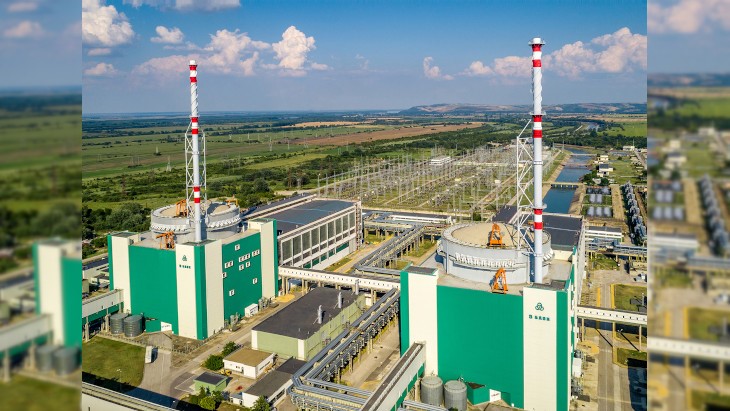The European Parliament (EP) has approved a European Commission (EC) proposal to extend its financial aid for the decommissioning of four shut-down reactors at Bulgaria's Kozloduy nuclear power plant until 2013. Meanwhile, neighbouring Serbia is said to be considering taking a stake in the proposed new plant at Belene.
 |
| More decommissioning funds for Kozloduy (Image: KNPP) |
In October 2009, with the decommissioning program uncompleted, the EC proposed earmarking an additional €300 million ($370 million) for site cleaning and the safe treatment of radioactive waste at the Kozloduy plant between 2010 and 2013.
In a vote today, the EP backed the proposed additional financial aid. However, it also called for stricter financial controls and more investment in energy efficiency. The EP said that of the proposed €300 million, Bulgaria should spend €180 million ($222 million) on decommissioning the Kozloduy units, while €120 million ($148 million) should go towards energy saving measures.
In a statement, the EP said: "The early closure of Kozloduy has already led to significant additional greenhouse gas emissions, so even though the program's primary goal remains decommissioning, it must also contribute to modernization of energy production, including renewable energy, new sustainable jobs and industries."
Members of the European Parliament (MEPs) also called for a detailed financial breakdown of the decommissioning program's individual projects, such as technical assistance costs, salaries for employed experts, construction costs of the radioactive waste disposal facility, and the cost of treating dismantled waste. The EC will monitor the program, which may be audited, either by the commission itself or by outside qualified auditors, at any time.
Kozloduy's two remaining reactors, units 5 and 6, provide about 35% of Bulgarian electricity. The closure of units 3 and 4 was controversial given extensive safety upgrades that had been carried out. The Bulgarian government even prepared for temporary restarts during the gas crisis of early 2009 when all supply was lost.
Similar shutdowns of Soviet-era reactors have taken place in Slovakia and Lithuania, with the latter's last Ignalina reactor closing at the end of 2009. Both these countries, as well as Bulgaria, have sought to replace old nuclear with new nuclear with the plan in Bulgaria to build two large pressurized water reactors at Belene.
Belgrade mulls Belene
German utility RWE had been set to take a 49% stake in the Belene project, with Bulgaria's NEK holding the remaining 51%, but pulled out altogether in October 2009. The Bulgarian government is now seeking new investors for up to 80% of the project and hopes to arrange this by the end of 2010. A project consultant was expected to be chosen by June 2010 to develop the plant's economic model and proceed to the selection of investors. Early in 2010, a new project company financed by Russia was established to finance construction activities until a strategic investor is found.
Serbia's energy minister has reportedly said that the country is considering participating in the Belene project. The Sofia News Agency (Novinite) cited Petar Skundric as saying, "The Bulgarian prime minister officially made an offer for Serbia to participate in financing construction of the Belene plant." He added, "We haven't made the decision yet, but we are interested."
Following the Chernobyl accident, Serbia introduced a moratorium on the construction of nuclear power plants until 2015. However, Skundric said that participating in the Belene project "would be a good reference for us and allow us to respect the embargo. It would also contribute to regional stability and cooperation."
Skundric said that he had discussed a loan to finance Serbia's participation in the project whilst on a recent trip to China, but said that no deal had been reached. Bulgarian prime minister Boyko Borisov said earlier this month that Serbia was interested in taking a 5% stake in the project.
Researched and written
by World Nuclear News




_47120.jpg)

_23621.jpg)






